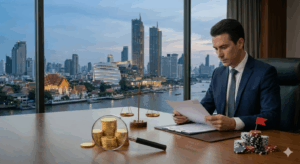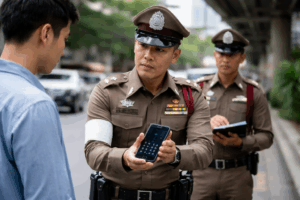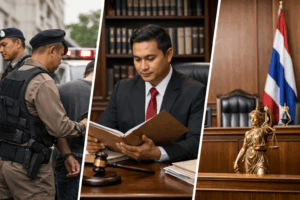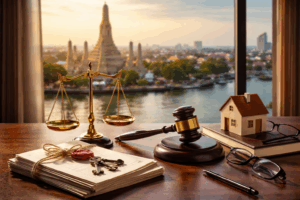environmental laws Thailand, industrial compliance, factory regulations, air pollution control, water pollution standards, hazardous waste management, recycling in Thailand, environmental permits, legal advice Bangkok, EIAs Thailand, sustainability in industry, Thai industrial laws, environmental impact assessment, waste disposal regulations, environmental lawyer
Understanding Environmental Regulations in Thailand:
Thailand, like many countries, has stringent environmental laws and regulations in place to safeguard its natural resources and public health. Industrial factory operators must navigate through a complex web of rules governing air and water pollution, waste management, and other environmental concerns.
Air Pollution Regulations:
Comprehensive Air Quality Standards: Thailand has established comprehensive air quality standards to control emissions from industrial sources. Industrial operators must monitor and control pollutants such as particulate matter, sulfur dioxide, and nitrogen dioxide.
Emission Control Measures: Factories are often required to implement emission control measures, including the use of pollution control equipment and adopting cleaner production technologies to minimize their impact on air quality.
Water Pollution Regulations:
Effluent Standards: Industrial discharges into water bodies are regulated by strict effluent standards. Compliance involves treating wastewater to meet these standards, preventing contamination of rivers and other water sources.
Waste Disposal: Proper disposal of industrial waste is crucial. Regulations govern the disposal of hazardous substances, ensuring that factories manage and dispose of waste in an environmentally responsible manner.
Waste Management Regulations:
Hazardous Waste Management: Industrial operators must adhere to regulations regarding the proper handling, storage, and disposal of hazardous waste. This includes obtaining permits for hazardous waste generation and transportation.
Recycling and Resource Efficiency: Encouraging recycling and resource efficiency is a key component of waste management regulations. Factories are often incentivized to implement sustainable practices to reduce their environmental footprint.
The Role of a Lawyer in Bangkok:
Given the complexity of environmental regulations, industrial factory operators in Thailand can benefit significantly from the expertise of a lawyer in Bangkok. Here’s how legal professionals can assist:
Regulatory Compliance:
A lawyer specializing in environmental law can provide valuable guidance on navigating the intricate web of regulations, ensuring that industrial operations are fully compliant with current laws and standards.
Permitting and Licensing:
Obtaining the necessary permits and licenses is a crucial step for industrial operators. A knowledgeable lawyer can assist in the application process, ensuring that all requirements are met for smooth and lawful operations.
Environmental Impact Assessments (EIAs):
Lawyers can help navigate the EIA process, ensuring that industrial projects undergo thorough assessments to identify and mitigate potential environmental impacts.
Legal Advocacy and Dispute Resolution:
In the event of legal challenges or disputes related to environmental matters, having a lawyer in Bangkok with expertise in dispute resolution and environmental law is invaluable for protecting the interests of industrial operators.
Conclusion:
As Thailand continues to evolve industrially, the need for environmental responsibility becomes increasingly evident. Industrial factory operators must prioritize compliance with environmental regulations to ensure sustainable and responsible business practices. Engaging the services of a qualified lawyer in Bangkok is not just a proactive measure; it is a strategic investment in the longevity and success of industrial operations in the ever-changing landscape of environmental law.
Contact : Siam Center Law Group by calling +66(0) 2 648 5041, +66(0) 2 648 5042





